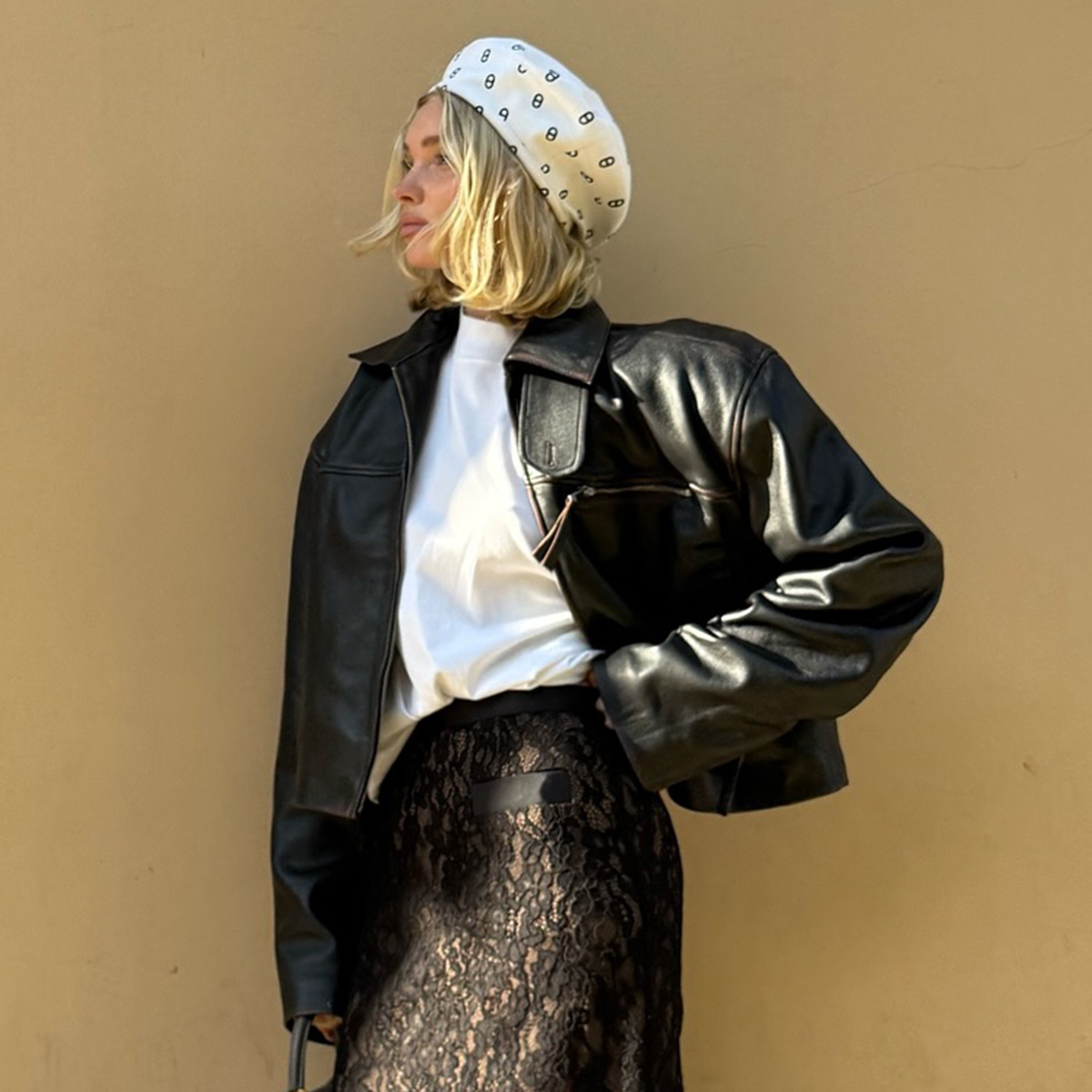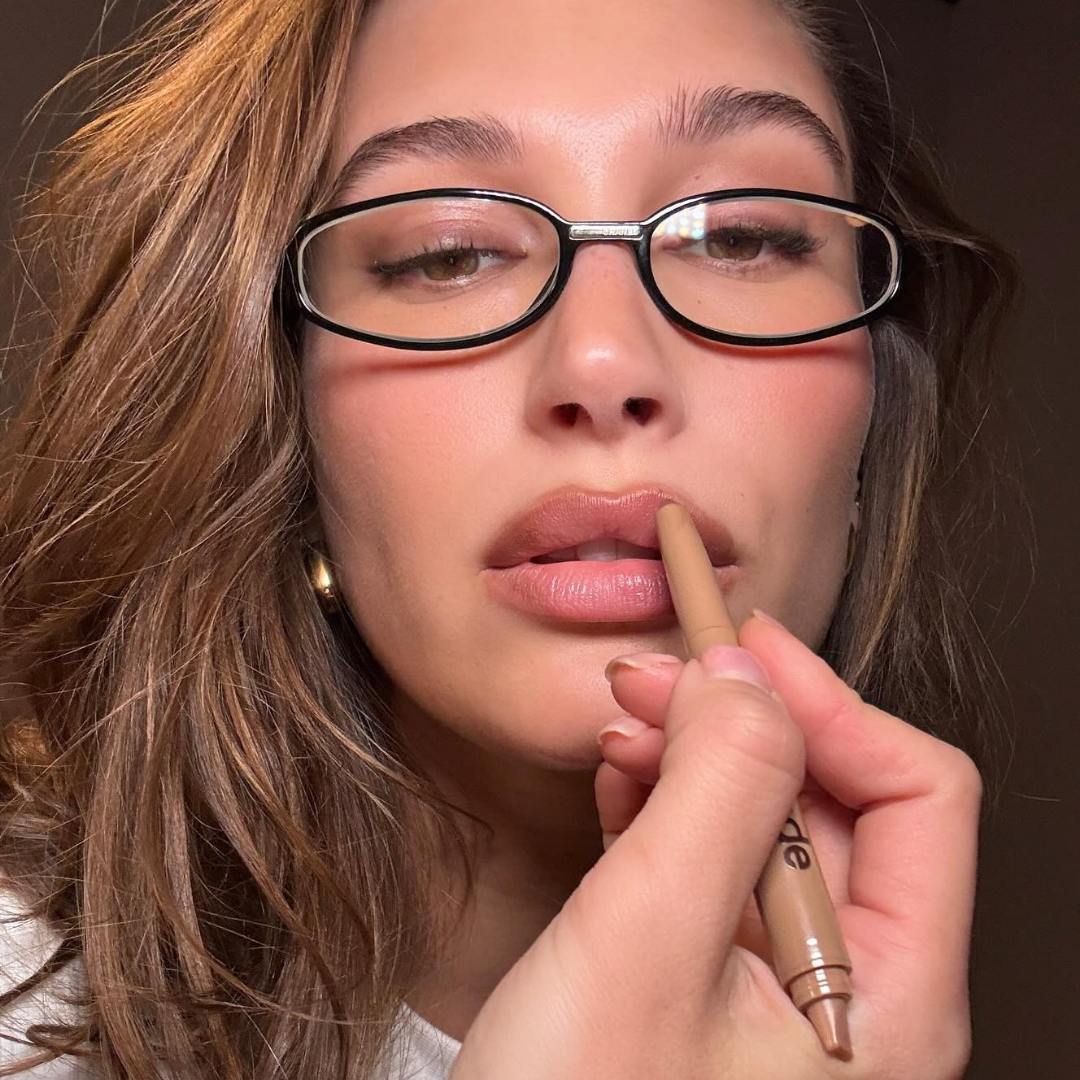"You Can't Play Power—You Have to Be Power": Ari Graynor on the Monsters Role of a Lifetime
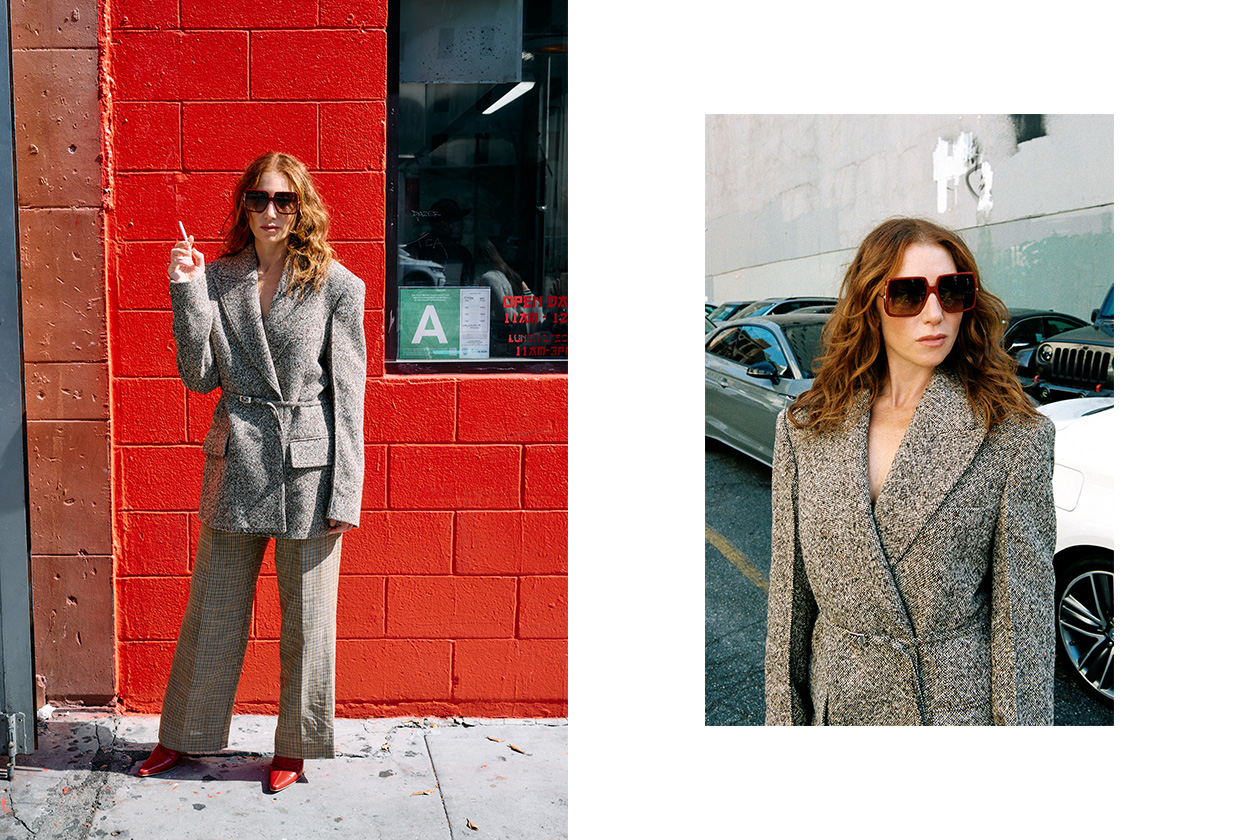
Since its premiere on Netflix last month, Monsters: The Lyle and Erik Menendez Story has created a cultural frenzy. The biographical crime drama centering on the 1989 murders of José and Kitty Menendez at the hands of their sons is currently the streamer's most-watched series for two weeks running, turning a new spotlight on the case that captivated so many Americans 35 years ago. The show has TikTok For You pages running rampant with original trial footage and interviews, and viewers are now fawning over its breakout stars—Cooper Koch, who plays Erik Menendez, is the internet's new "babygirl." Now, Los Angeles prosecutors are reviewing new evidence in the case to determine whether or not the brothers should be serving life sentences.
The Ryan Murphy effect is a powerful thing.
Ari Graynor (Nick and Nora's Infinite Playlist and Mrs. America) knows this firsthand. She tells us that portraying Erik Menendez's defense attorney Leslie Abramson in Monsters was an "extraordinary gift" that has left an indelible mark on her. While the opportunity to be a part of a Murphy-verse project for Netflix was certainly attractive on its own, Graynor also looked forward to showing Abramson, a woman who was often vilified in the media, as a fully dimensional, nuanced person. Throughout the show's nine episodes, Graynor manages to embody Abramson's strength and fierceness while also imbuing her with a nurturing warmth, which is especially powerful in the midseason episode "The Hurt Man." It's an outstanding performance that has many, including us, putting Graynor's hat in the ring for award season.
As the buzz continues to roll on for Monsters and more develops with the real-life case, we caught up with Graynor from her parents' Massachusetts home.
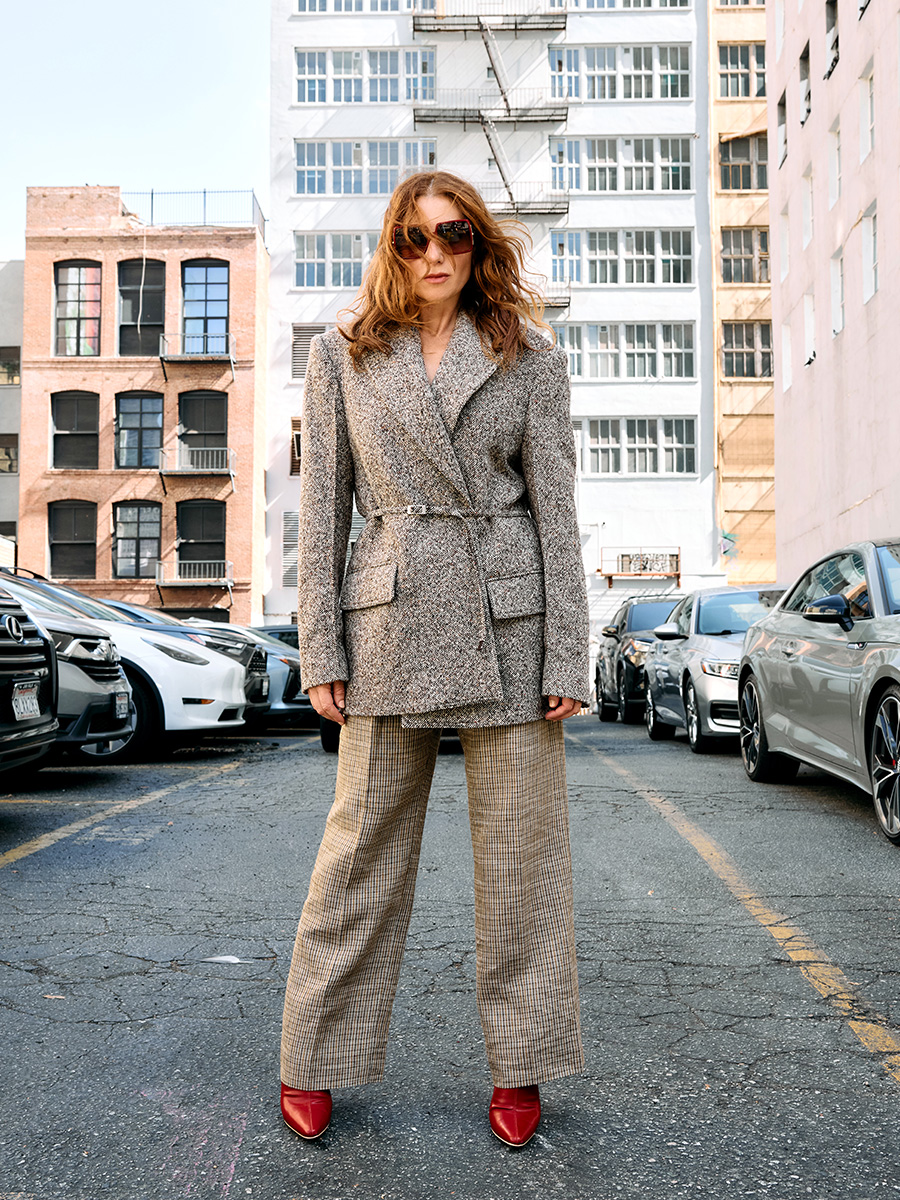
Monsters: The Lyle and Erik Menendez Story has been the most-watched series on Netflix for two weeks running. How has it been for you to see the response to the show?
It's incredible and overwhelming and wild on so many different levels. It's funny because even though this is Netflix and Ryan Murphy, two of the biggest creators and largest platforms, it still felt like such a personal and intimate piece of work. It's incredible how many people are seeing it. It's a little bit like trying to touch a rainbow. You know it's happening, but it's not a place that you can feel or visit or see necessarily. You just know that something is happening. I'm so proud of this work—of my work, the boys' work, of everybody. The entire cast is so unbelievably talented. Ryan Murphy is an absolute legend, and I will be forever grateful to him for this opportunity.
With Feud, Monsters, and American Sports Story, the Ryan Murphy–verse has created a signature brand of character studies through a campy, sensationalized Hollywood lens. What interested you about Murphy's take of the Menendez story?
First of all, what Ryan Murphy has done for women on television is unparalleled. Him and his collaborators create these incredibly full-bodied, specific, lived-in characters and women that are so incredibly rare. Leslie Abramson was one in a million as a human being and even more rare to find a woman like her on TV, somebody that powerful and ferocious and smart and unwavering and funny. She's all the things. It was a slow rollout of discovering the show. The first two scenes that I got and read were when Leslie is introduced at the adoption agency and the first time she meets Erik. There was a line that may have been cut out. I can't remember, but she said most of the prisons in this country are filled with sad, wounded souls who never felt loved enough. I never would have thought that was the way in [to her], so that was so exciting to me because it was so thoughtful and deep and coming at it from this other direction.
[I was] getting the sense that they were telling this story from multiple points of view and trying to hold all the different takes and all the different experiences. I was just living in my own reality of that show, which is through Leslie and her experience, so I was able to just dive in completely headfirst on all things Leslie and all things on the defense. I watched everything a thousand times that I could find on her and the trial, but truth be told, I really only watched her and the defense. I didn't watch the prosecution. I was only really interested in living inside her point of view and her reality within my daily work.
You were 6 when the murders and first trial took place. Do you remember hearing about the case or your parents talking about it?
I remembered just abstractly the Menendez brothers. They killed their parents. Maybe there was other stuff going on. It was very vague. Maybe when I mentioned to [my parents] that I was auditioning for this, there was a response of like, "Oh yeah, she was amazing!" I personally didn't have a memory of her. It's like when you fall in love or you meet a great new friend—when you see someone from across the room and you just feel like you see them and you get them and you're drawn to them and you say, "Now, tell me everything about you." On some level, you feel you see the entirety of who they are, which is always how I felt about Leslie. I did more work on this job and with this character [than I've done for previous roles]. I was still watching stuff, reading stuff, going back into all the notes and rewatching all the different pieces up until the final week of shooting. I just wanted to keep the reality of her and all of the pieces you discover along the way for specific moments because we are quite different, and how we present is quite different. Though, I have that piece of her essence inside me.
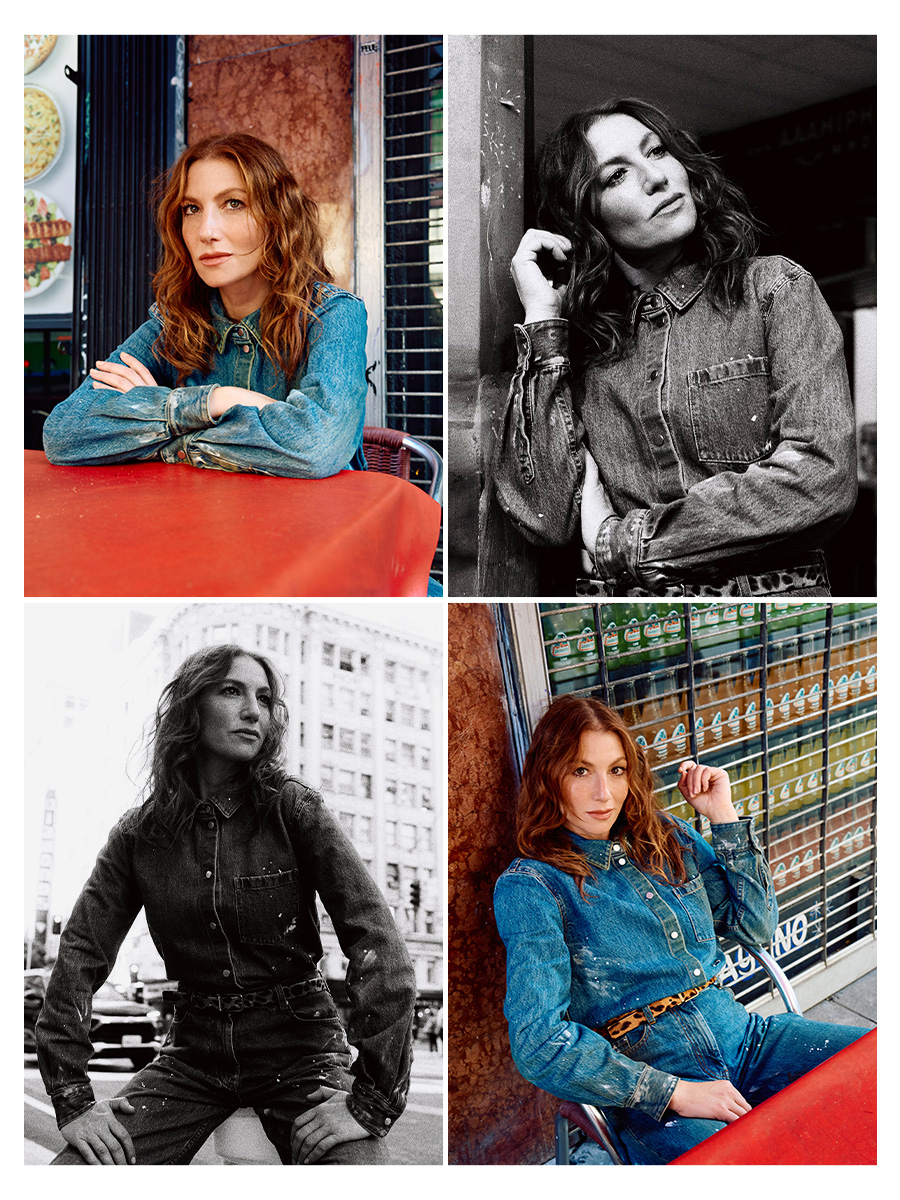
Leslie had quite the reputation and was often vilified in the media. Why do you think she was often painted this way?
A bunch of things come to mind. First of all, in playing her, she really debunked the myth for me of who a defense attorney is. Not that I had some great preconceived notion, but she came up as a public defender. She worked in juvenile courts. She was born in Queens in 1943. Her grandmother was a labor organizer. She had a very deeply ingrained sense of justice and fairness and fighting for the underdog and not having systemic government taking advantage of the people. So there was a real, sort of radical activist inside of her in a way that I think was a huge part of why she was a defense attorney. She said in an interview or in her books that she was never interested in being on the prosecution side. She felt that everybody deserved a defense, and she didn't want to be working for the man. That already brings in a history and context for how she's finding herself in this space. She also said that being a defense attorney, especially for capital punishment cases, was hard, and she liked a challenge.
In terms of how she was perceived by the media or the people, 35 years later, a lot of our lens has changed in enormous ways. What she was defending and understanding [was] trauma and abuse and the psychological effects of those things, and she was so ahead of her time. We are able to see that in such a different way now than we were then. In terms of powerful, strong, assertive, aggressive women, we're all very familiar that the double standard still exists of those qualities being revered in men and found to be sometimes off-putting for women. One of my favorite quotes from her… I think it was in a Barbara Walters interview. It was either Barbara Walters or Larry King, and she says, "I never said I'm Shirley Temple. Not everybody's going to like me." I just love it.
Was there anything about this role that made you nervous?
I was unbelievably excited and knew that this lived inside of me and that I was meant to play her, but [I was] also terrified and intimidated and had to do a lot of personal work through my own self-doubt of, What if I get in my own way? What if I can't hold onto her power? What if I can't embody that? There are certain qualities as an actor that you can't play. You just have to be. … In this show I did called Mrs. America, where I played another lawyer, there was a scene, and our director was saying, "Can you be more free? I kept being like, "Yeah, yeah totally. So like, free like how? Free like this, or free like that?" I realized while we were doing it. You can't play free. You just have to be free. … Similarly with Leslie, what was so intimidating and scary and also this incredible personal opportunity for me was to step in and embody my own power. You can't play power—you have to be power. I know I have a lot of power and strength inside, and I sometimes struggle to live from that space. … To get to embody that for eight months was an unbelievably enormous gift for me.
The looming courtroom stuff was a big deal for me. It was so amazing to get these other looks into her life, and there was all this stuff shot at [Leslie's] house and with [her] husband—some of which was cut out—and stuff with the boys. Really, when we got to the opening [argument] and especially the closing [argument], I felt like this is where everybody knows what she's like, and I really wanted to do her justice in there. Her real closing was 15 hours over the course of three days, and Ian Brennan—who is one of the writers, creators, and also directed episode eight, which is where [the closing argument] happens—was great about saying, "If there's something that was in the closing that you want to throw in, let us know." I was going through with a fine-tooth comb to try and find some of those beats and to really play around in that space. That felt like a very big, deep day, and it was toward the end of the shoot. It was one of those incredible moments where you feel like all the noise stops, and the meeting between me and her had happened.
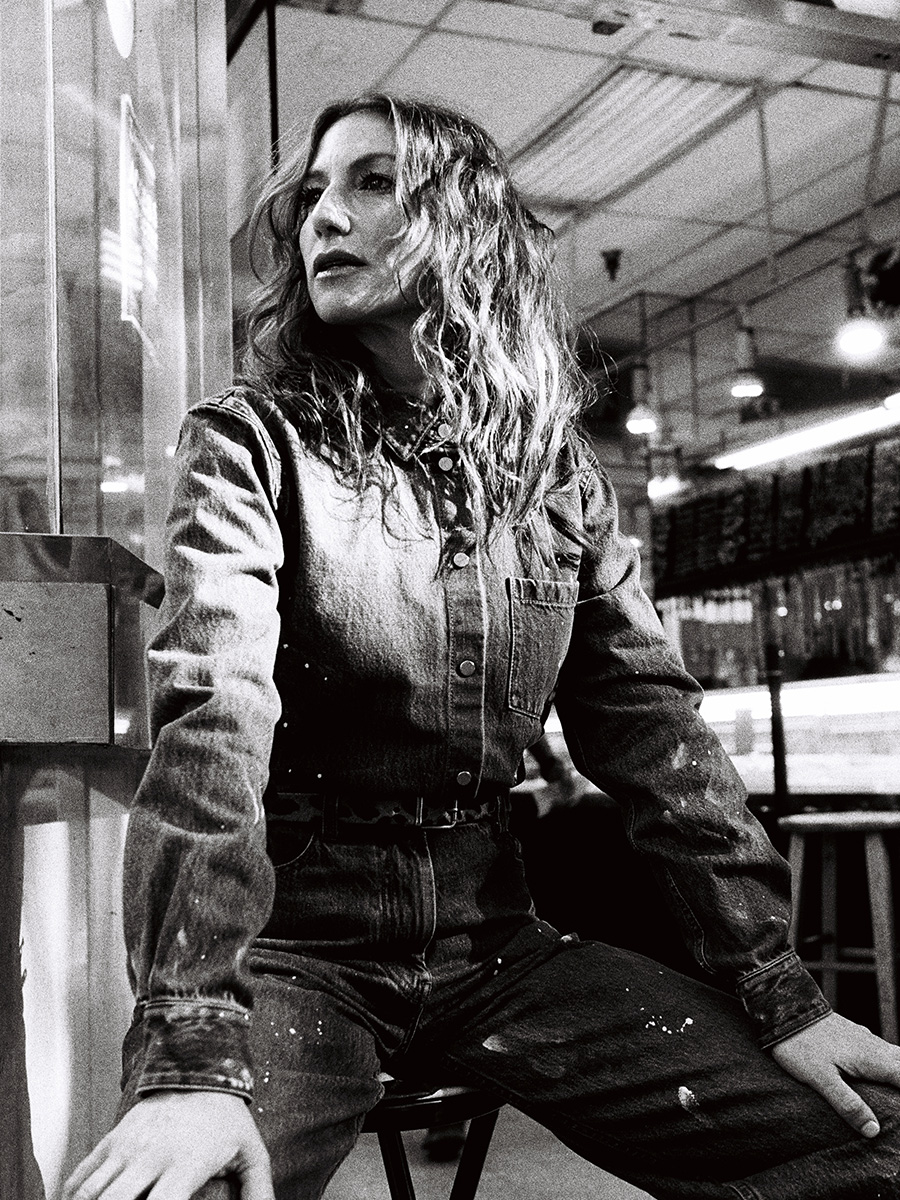
The questioning-room scene with Erik Menendez and Abramson in episode five is very powerful—Menendez's monologue and the way it was shot. What was it like preparing for that scene and filming it?
It was amazing because I think that script was written almost a full year before we shot it, and that one shot was written into the script. I always knew they were looking to do it like that. Cooper and I had run the lines together—no acting, just running the lines on my porch. He memorized it before we'd even started shooting. I was much more intimidated by it in a different way because I felt I really had to know who she was before I could know how to fully prepare for that scene because [of] how somebody listens, how somebody holds space, especially when she's playing multiple roles. [In that moment], she's his lawyer, she's his therapist, [and] she's his mother. I waited until I knew we had a shoot date and then really started to get into it.
I think the idea was always that you can't look away. You cannot look away from this story. That is incredibly powerful, to give Erik's personal experience just complete presence, no distractions. When we did the rehearsal, we did it once, and everyone—it was a small group of us—we were all just quiet and crying, and our incredible director Michael Uppendahl said, "I don't really want to touch this. Let's just shoot it." For me, it didn't matter where the camera was. What I was going to do and how I was going to prepare for and be present in that scene was the same whether it would have been a slow push in on me or it's behind [me]. It's the same work. I just really wanted to be there to support [Cooper] and give him everything I had to give him so he could give everything he had. It's an exchange.
It's just a deeply rare thing to see that kind of conversation between two people. He's saying the most unspeakable of unspeakables. Male sexual abuse is the most secret of the secrets and is so tender to share. The way that episode was written … Leslie is [generous] and loving and compassionate and not making [Erik] feel other and not questioning him and just supporting him in a way that was very honest and honest for her. Shooting that taught me a lot about listening.
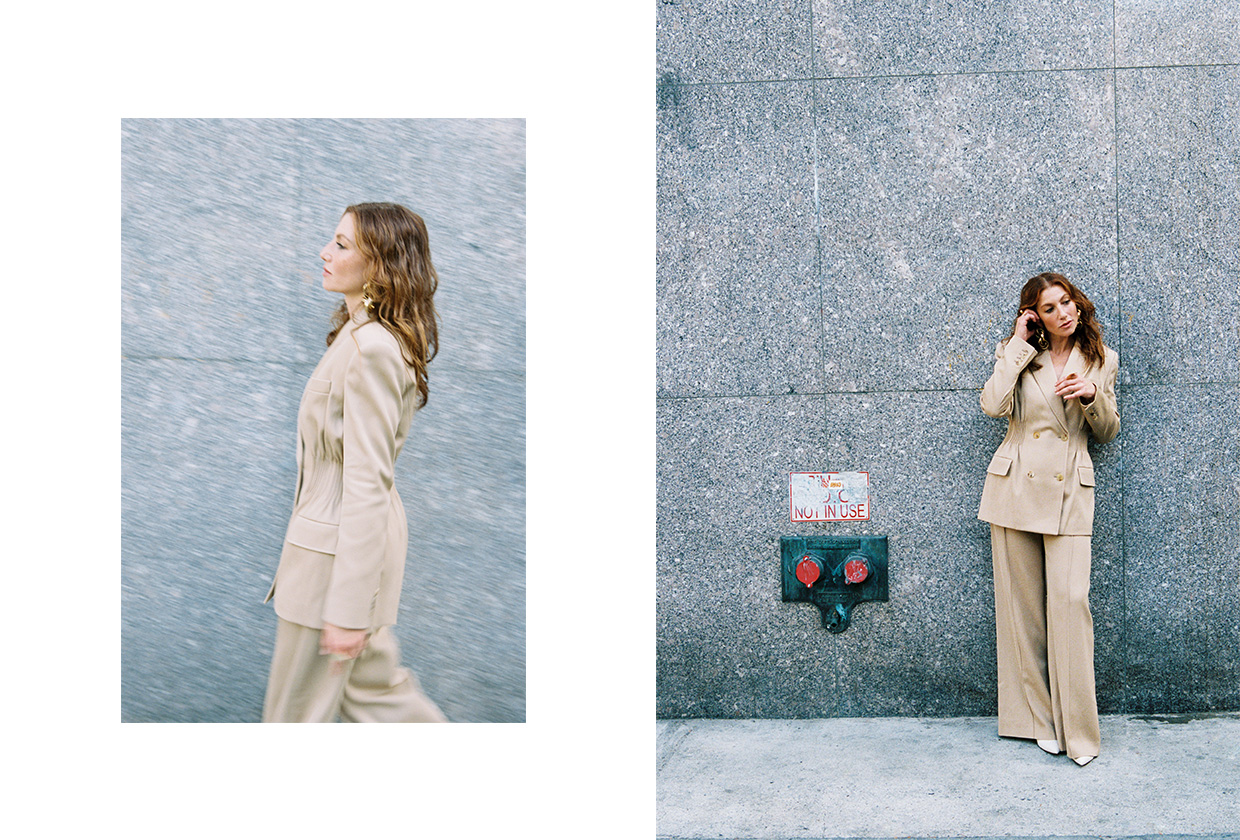
There was such a mother-son dynamic between Abramson and Erik Menendez. Did you and Koch become close while filming?
We did. He is my absolute love. We've already been texting first thing this morning. We're just in constant contact. He was the first person I spoke to when this got worked out, and it feels like fate that we were put in this together, to meet each other to do this work together. We just instantly connected and had this bond. We were living five minutes apart from each other while we were shooting, so he would be over almost every day, and we'd have post games on the porch. There are lots of stories where people work together, and they don't have that, and the work is still great. For me, so much of what I love about what I do is the people I get to meet and the relationships that form because you're really sharing the deepest parts of yourself, even though you're not being yourself. It's very intimate. I'm so proud of … both of the boys because Nicholas [Alexander Chavez] was also remarkable.
Let's talk about Abramson's wardrobe. It felt very bold for that time period and the line of work she was in. How was it working with the costume department on re-creating her looks?
Paula Bradley, she and the whole team did an exquisite job with the whole show. I mean, it is a vibe. The show is a vibe. That red suit is this amazing vintage Saint Laurent suit. There's this black vintage Ungaro one that I'm wearing with the Menendez family when we first meet. The green Chanel at the end of [episode] eight. Then they built some suits for me. It's fascinating. During Leslie's opening statements on that first day in trial, she and Jill Lansing both really did come in these amazing white suits. Leslie wore a pink suit when Erik was on the stand. There was some stuff we were really tracking as close as possible. Other things, they were all pretty close. Sometimes, we would say it was elevated, or maybe it was cut a little closer to the body for me than it was for her. They were so collaborative, and we would talk and play, and they had a lot of references.
When we got to the second trial in episode nine, a huge shift happened for Leslie. You can really see it. I think the whole thing had been almost seven years and obviously an enormous heartbreak for her. She went through the wringer in between the first and second trials, and you can really see it. The suits were more brown and baggier, and compared to the way she walked in with such command in the first trial, you could see there had been a toll taken. We talked a lot about that. I think Leslie knew how to use clothes and appearances in a very smart, perspective way, like what the power of a white suit means. As somebody who basically dresses as a toddler most of the time in my real life, I can say how I felt wearing those power suits. It certainly helps to own that power. I really understand it.
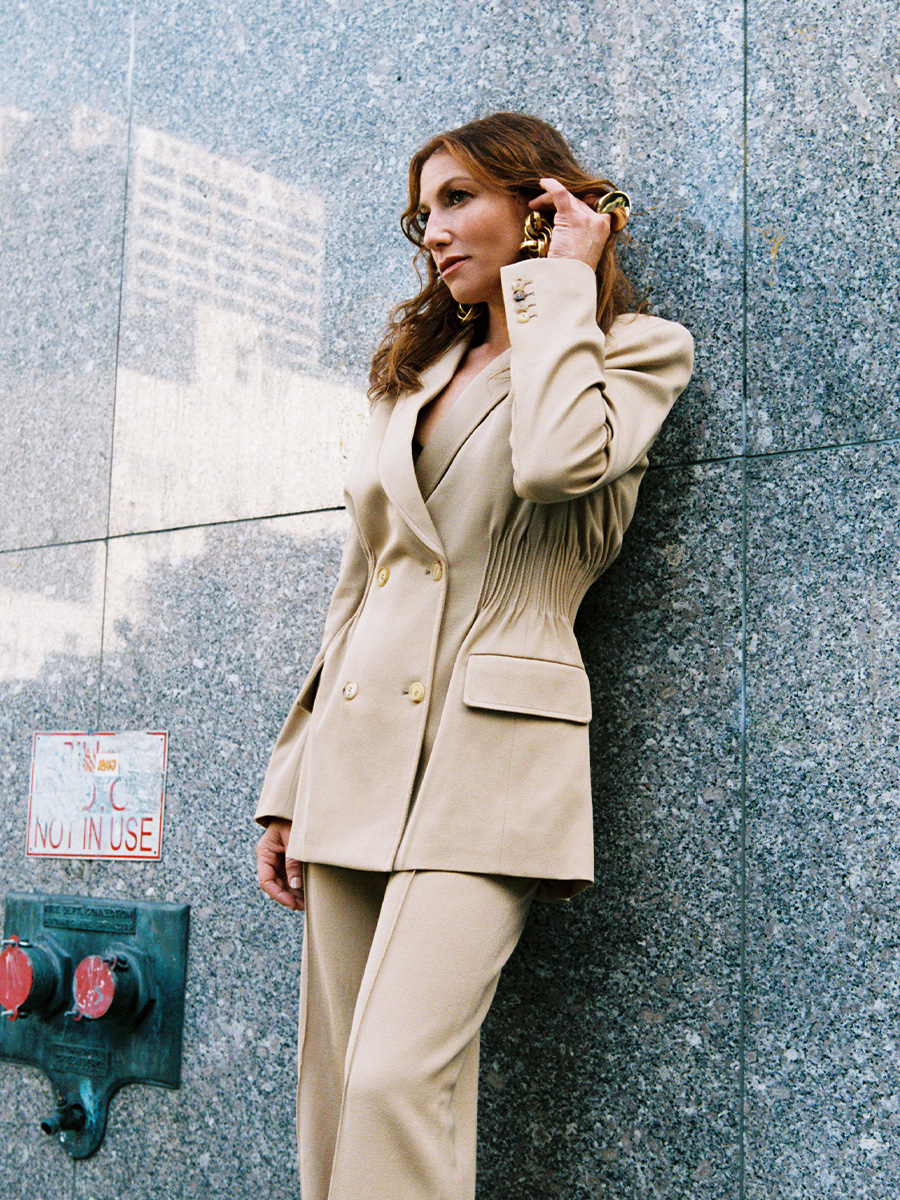
You threw so much of yourself into this character and really lived with her for a while. How do you separate yourself from someone or grieve a character once you've finished filming a project?
It's such a beautiful question because it's been an ongoing thing for me. I still really miss her, and sometimes, I tear up thinking about her—almost in the way of somebody who is gone from your life, somebody who died, or someone who you broke up with but still loved. This whole thing happened pretty fast. I got back from shooting June 1. It hasn't been that long, and I went right into this other film. I was having dinner with my best friend after we had had rehearsals, and I sat down at dinner, and she was like, "How was rehearsal?" I was like, "Leslie's voice came out while I was rehearsing." I just started sobbing at the table that I missed her and didn't want to let her go.
Not to sound hoaky, but I think with each character you play you're a little bit changed by them, and you hold them with you in a different way. I started to do a little ritual with myself after a job of saying with each character, What have I learned from this character? What do I want to keep with me after this? What am I ready to let go of? It is a letting-go and ultimately a gift to know she still lives inside me somewhere. Give me the wig and she'll come right back out.
Monsters: The Lyle and Erik Menendez Story is now streaming on Netflix.
Jessica Baker is Who What Wear’s Executive Director, Entertainment, where she ideates, books, writes, and edits celebrity and entertainment features.
-
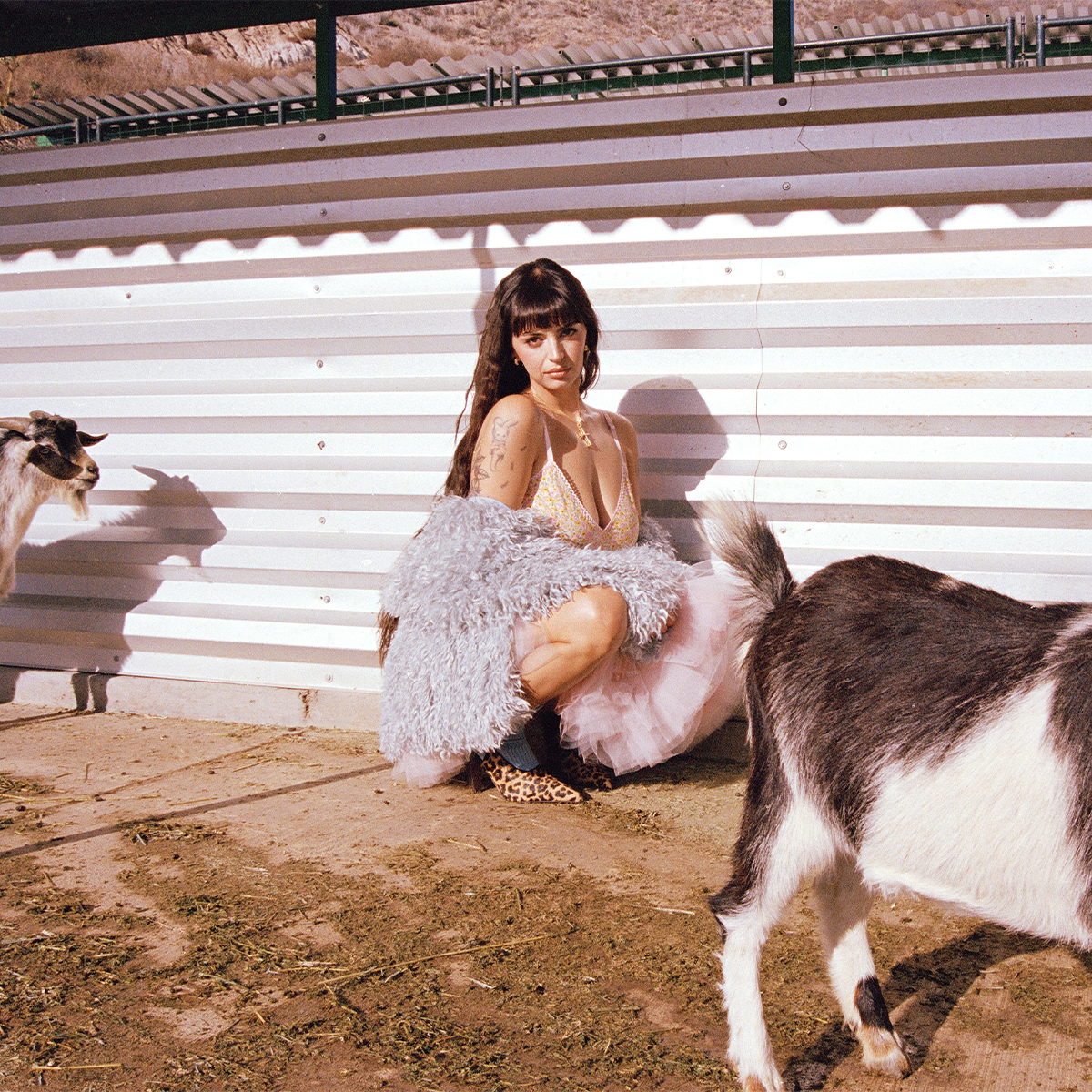 Rebecca Black Is Back and Ready to Show You All of Herself This Time
Rebecca Black Is Back and Ready to Show You All of Herself This TimeThe "Friday" singer has a brand-new pop EP, Salvation.
By Jessica Baker
-
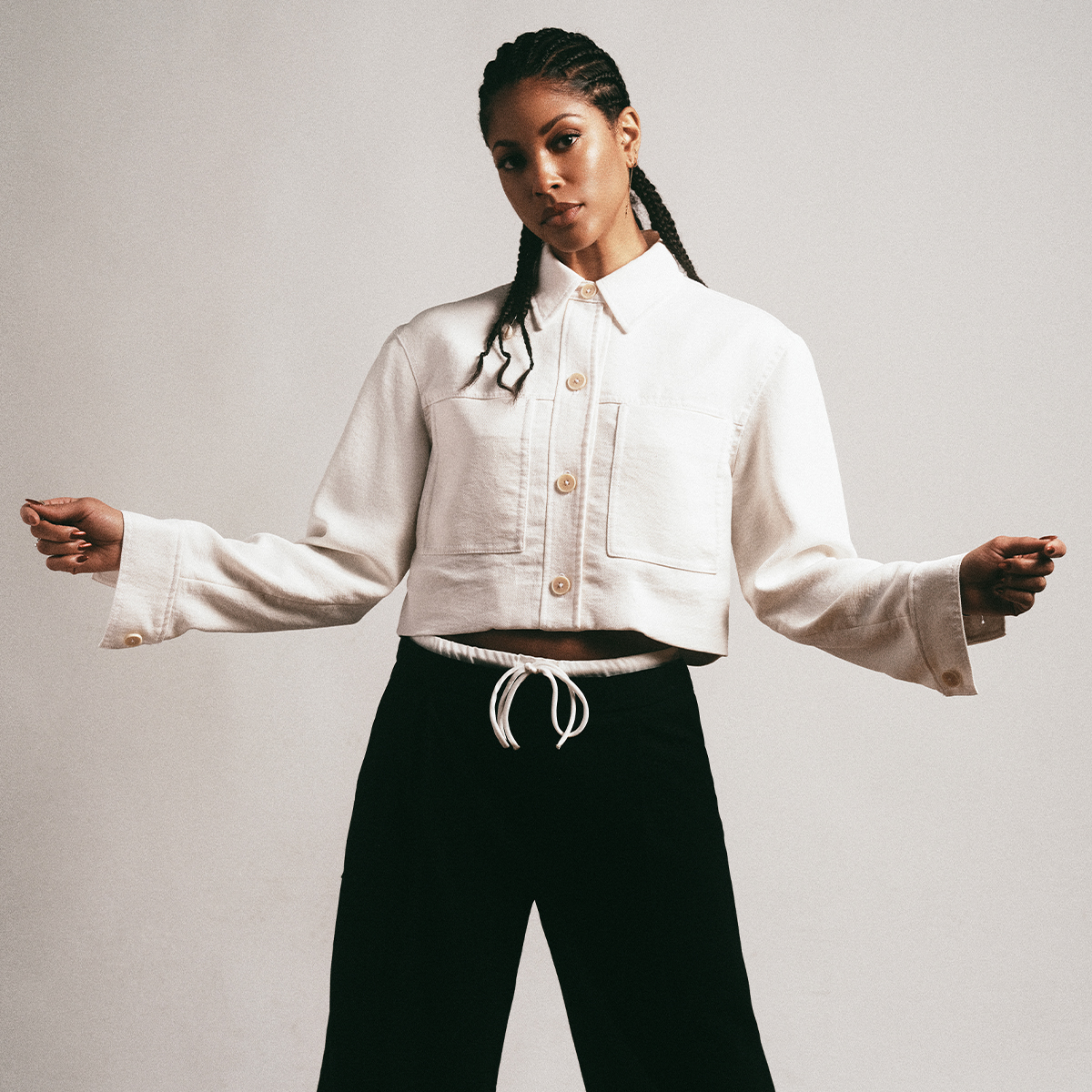 Lex Scott Davis on Joining the Suits Universe and Her Character's Iconic Wardrobe
Lex Scott Davis on Joining the Suits Universe and Her Character's Iconic WardrobeA lesson in power dressing.
By Jessica Baker
-
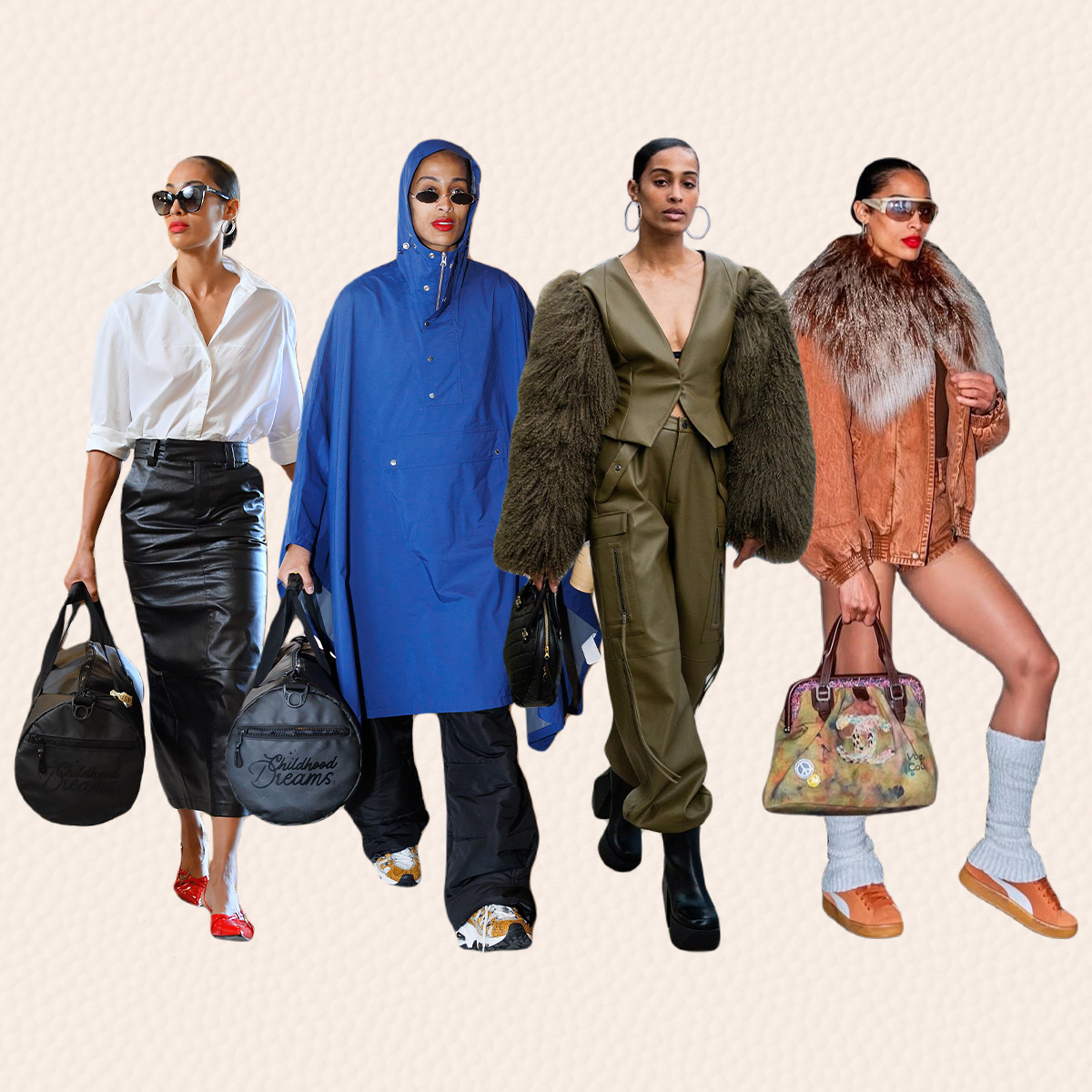 The Power of Styling in Sports
The Power of Styling in SportsIn conversation with Skylar Diggins-Smith and her stylist, Manny Jay.
By Eliza Huber
-
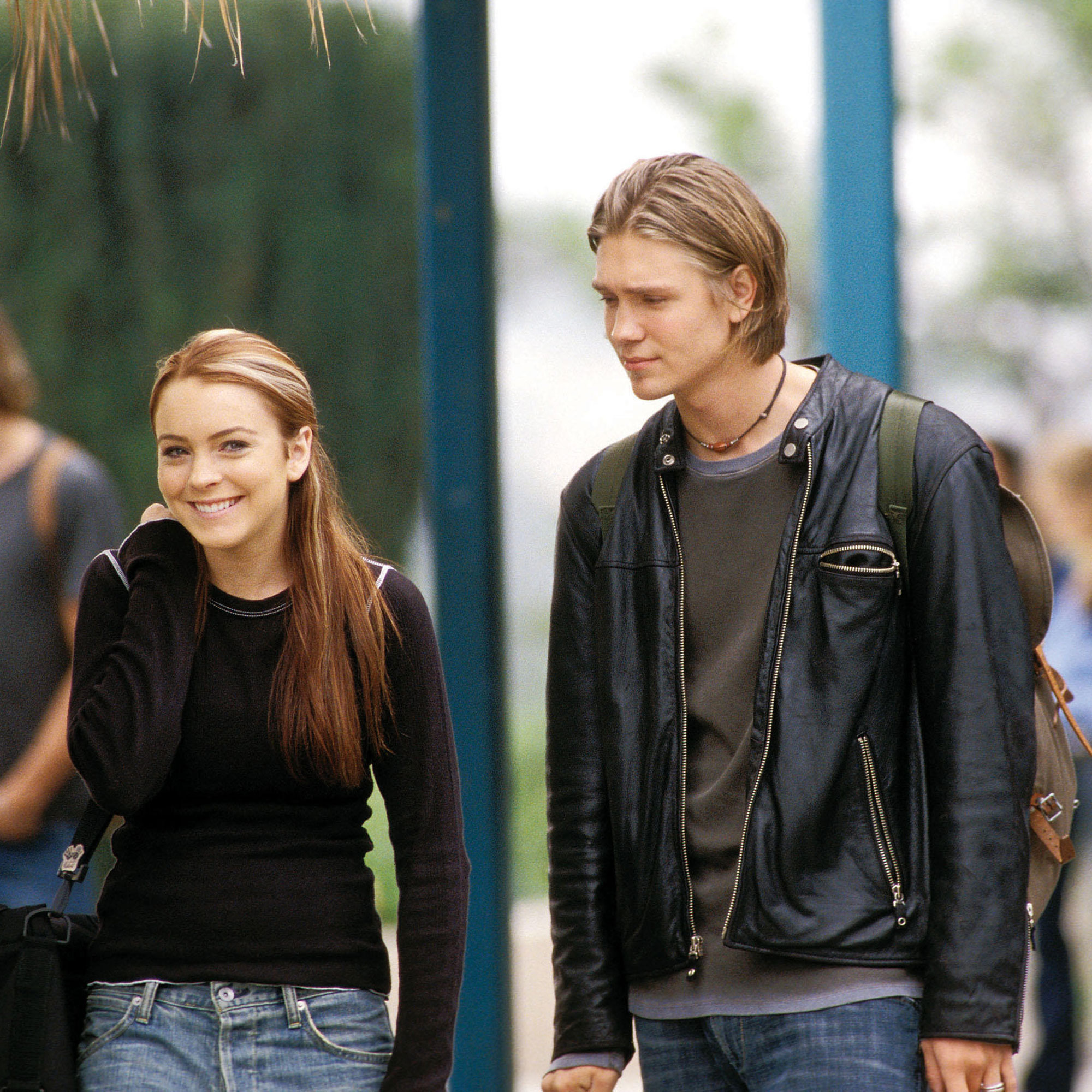 The First Trailer Just Dropped for Lindsay Lohan's Freaky Friday Sequel—Watch It Here
The First Trailer Just Dropped for Lindsay Lohan's Freaky Friday Sequel—Watch It HereThe original premiered in 2003.
By Erin Fitzpatrick
-
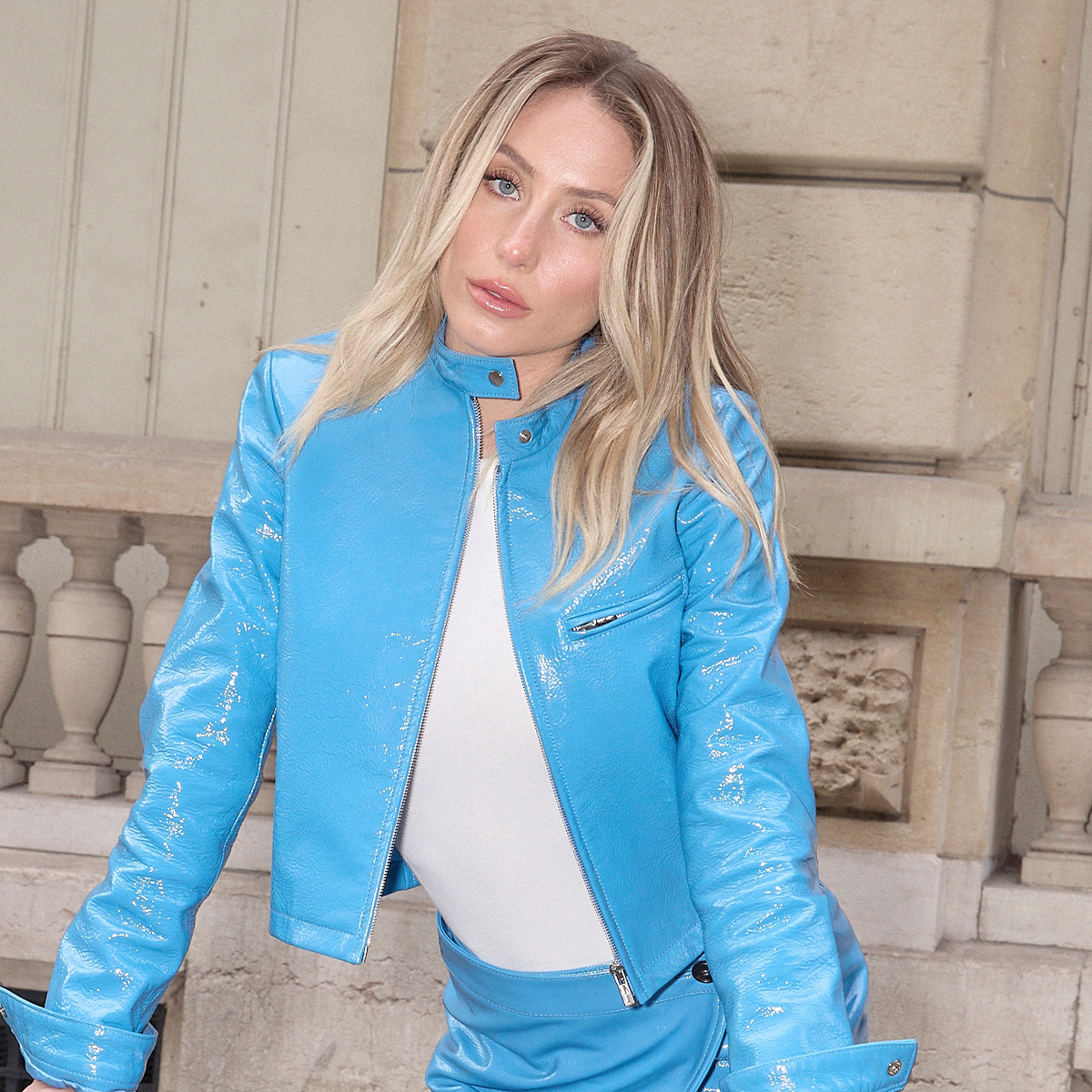 Alix Earle Takes Fashion Risks for Miu Miu (Yes, That Includes Socks With Heels)
Alix Earle Takes Fashion Risks for Miu Miu (Yes, That Includes Socks With Heels)Anything for Mrs. Prada.
By Ana Escalante
-
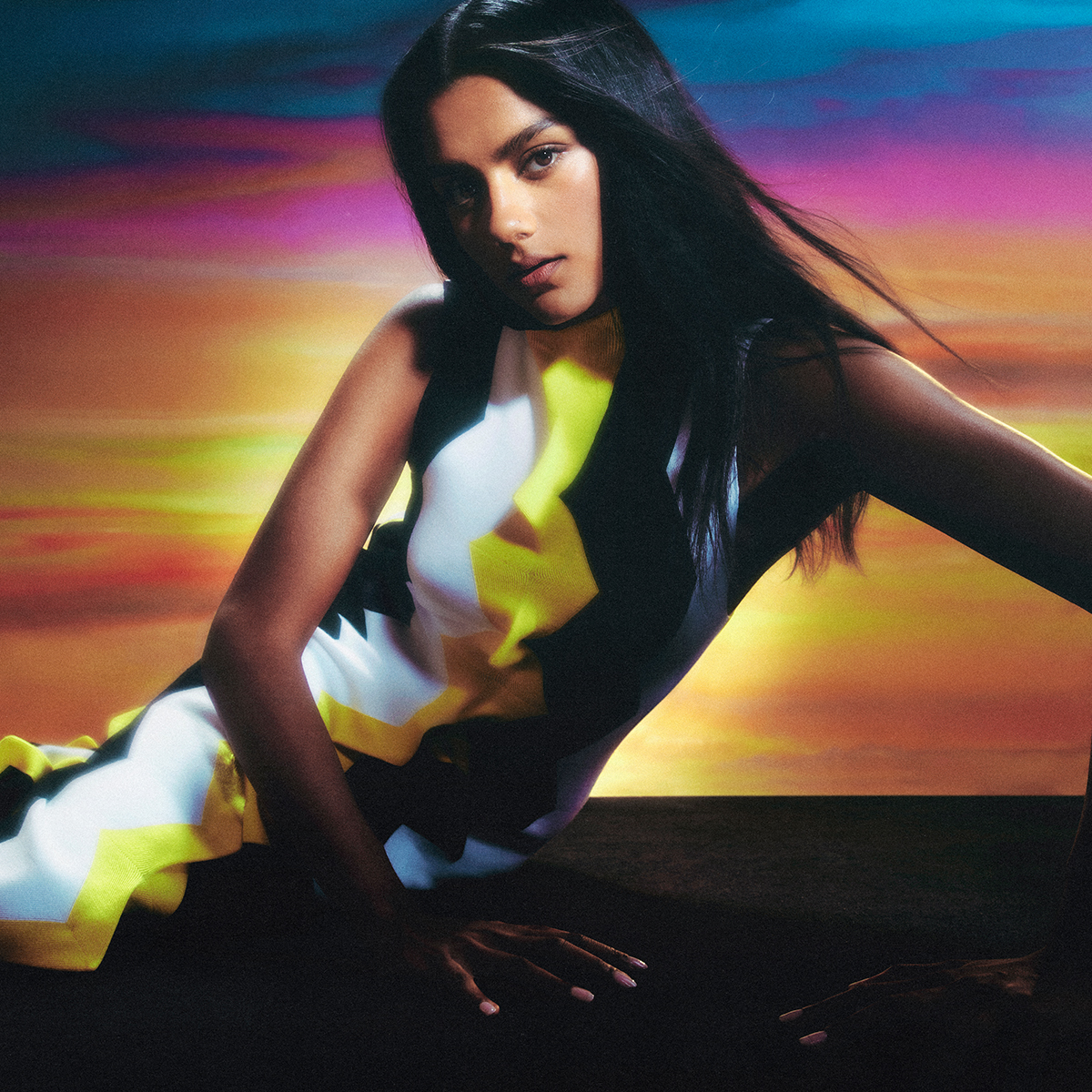 Simone Ashley Is in the Fast Lane
Simone Ashley Is in the Fast LaneSince her breakout role in Bridgerton, our Spring Issue cover star has quickly risen to A-list status. Up next, she masters the rom-com leading lady.
By Liv Little
-
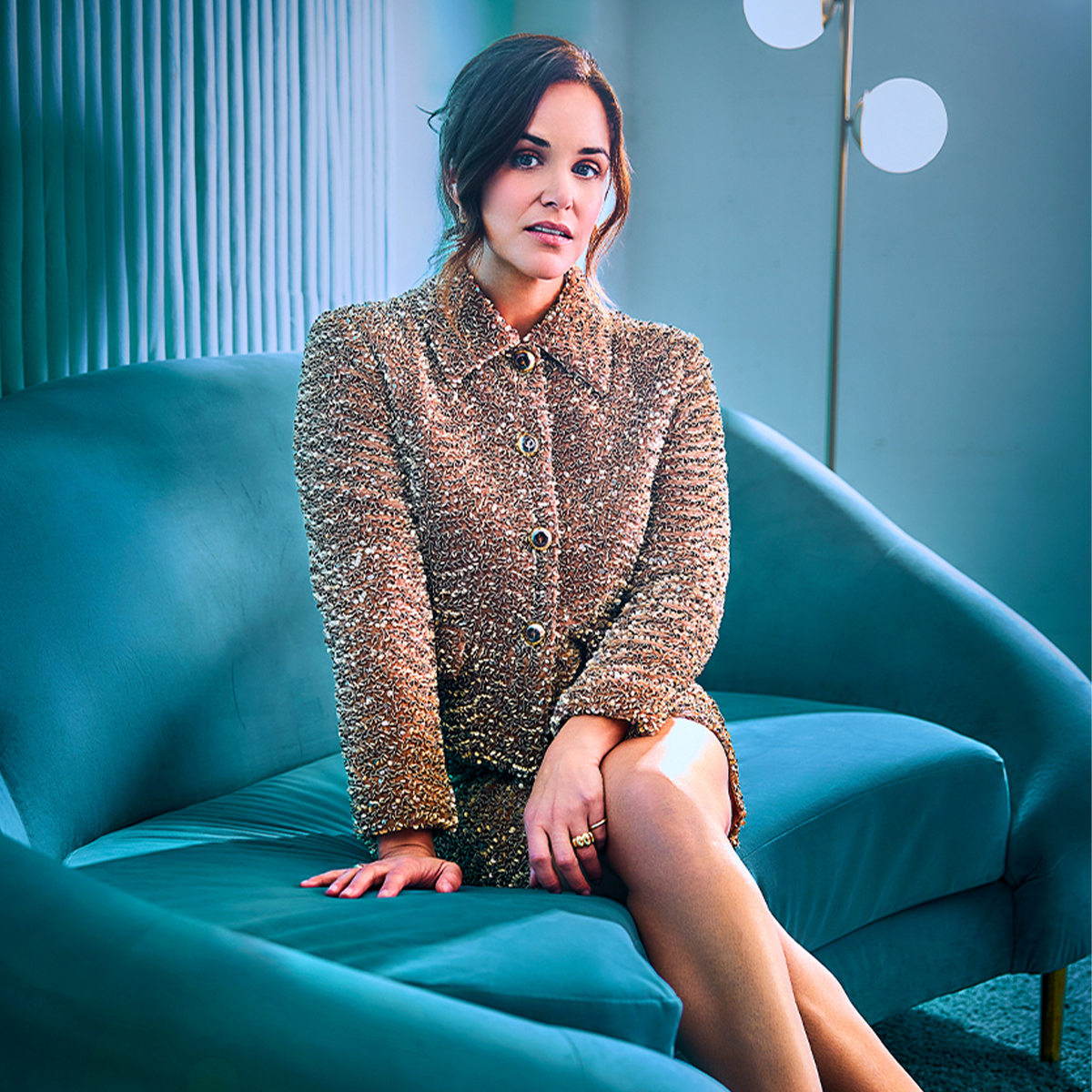 How Melissa Fumero Built One of Our New Favorite Fashion People on TV
How Melissa Fumero Built One of Our New Favorite Fashion People on TVMeet Birdie, Grosse Pointe Garden Society's queen bee and fashion person.
By Jessica Baker
-
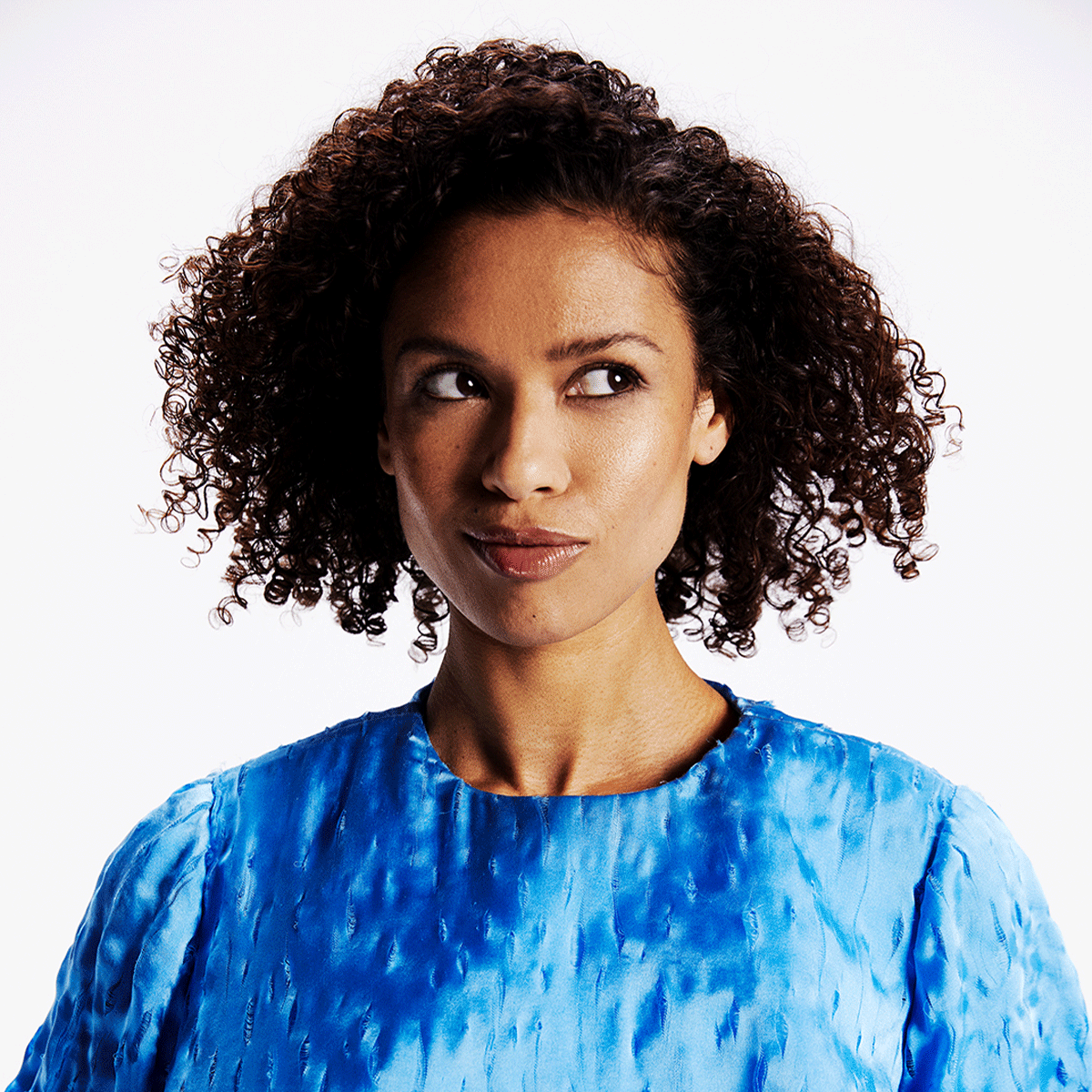 Gugu Mbatha-Raw on Surface Season 2 and the Fragrance She Uses to Get Into Character
Gugu Mbatha-Raw on Surface Season 2 and the Fragrance She Uses to Get Into CharacterHint: It's a beautiful woodsy scent full of twists and turns.
By Jessica Baker
